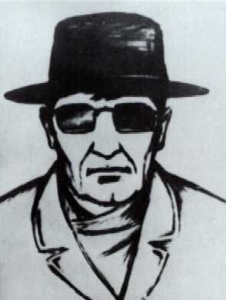
1936 - 1994
Andrei Romanovich Chikatilo
Summary
Name:
Nickname:
The Butcher of Rostov / The Forest Strip Killer / The Red Ripper / The Rostov RipperYears Active:
1978 - 1990Birth:
October 16, 1936Status:
ExecutedClass:
Serial KillerVictims:
52+Method:
Stabbing / MutilationDeath:
February 14, 1994Nationality:
Soviet Union
1936 - 1994
Andrei Romanovich Chikatilo
Summary: Serial Killer
Name:
Andrei Romanovich ChikatiloNickname:
The Butcher of Rostov / The Forest Strip Killer / The Red Ripper / The Rostov RipperStatus:
ExecutedVictims:
52+Method:
Stabbing / MutilationNationality:
Soviet UnionBirth:
October 16, 1936Death:
February 14, 1994Years Active:
1978 - 1990Date Convicted:
October 15, 1992bio
Andrei Romanovich Chikatilo was born on October 16, 1936, in Yabluchne, Ukraine, during a period of severe famine known as the Holodomor. His early life was marked by extreme poverty and hardship. His mother, Anna, reportedly told him that his older brother, Stepan, had been kidnapped and eaten by neighbors during the famine, though no official records confirm Stepan's existence.
During World War II, Chikatilo witnessed the horrors of the Nazi occupation, further traumatizing his childhood. He suffered from chronic bed-wetting and was frequently beaten by his mother as a result. Despite these challenges, Chikatilo was a voracious reader and performed well academically. He later served in the Soviet Army and, after being discharged, pursued higher education, earning degrees in Russian literature, engineering, and Marxism-Leninism.
In 1971, he began working as a teacher, a position he held until 1974 when he was forced to resign due to allegations of sexual misconduct involving students. Chikatilo married in 1963 and fathered two children, despite experiencing sexual dysfunction throughout his life.

murder story
Chikatilo's murderous spree began on December 22, 1978, with the abduction and murder of nine-year-old Yelena Zakotnova in Shakhty, Rostov Oblast. Over the next 12 years, he targeted women and children, luring them to secluded areas before attacking them. His modus operandi involved stabbing his victims repeatedly, often mutilating their bodies post-mortem.
Chikatilo confessed to deriving sexual gratification from these acts, compensating for his impotence. The Soviet authorities initially struggled to apprehend him, partly due to a lack of experience with serial murder cases and the belief that such crimes were a product of Western decadence. In September 1984, Chikatilo was arrested but released due to insufficient evidence and discrepancies in blood type analysis.
The breakthrough came in November 1990 when he was detained near a train station after exhibiting suspicious behavior. A search revealed evidence linking him to the murders, leading to his arrest on November 20, 1990. During interrogation, Chikatilo confessed to 56 murders, providing detailed accounts of each crime. He was tried for 53 counts of murder in April 1992 and was found guilty of 52.
On October 15, 1992, he was sentenced to death. Chikatilo was executed by a single gunshot to the back of the head on February 14, 1994, in Novocherkassk Prison.